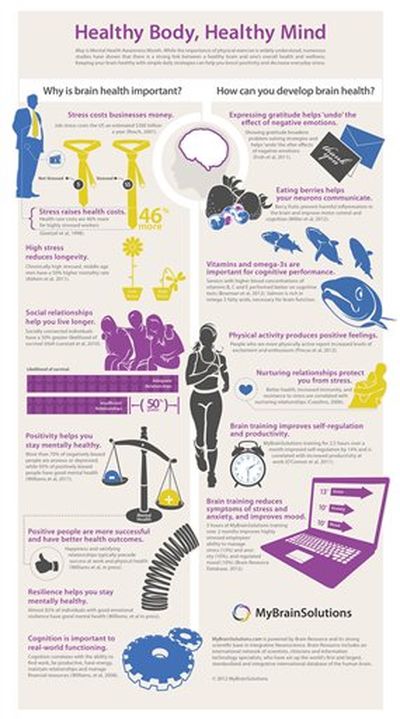Mind games: Mental exercises are key to better brain function

DETROIT — Go ahead — do it: Grab a pencil. Right now. Write your name backward. And upside down.
Awkward, right?
But if researchers and neurologists are correct, doing exercises like these just might buy you a bit more time with a healthy brain.
Some research suggests that certain types of mental exercises — whether they are memory games on your mobile device or jotting down letters backward — might help our gray matter maintain concentration, memory and visual and spatial skills over the years.
“There is some evidence of a use-it-or-lose-it phenomenon,” says Dr. Michael Maddens, chief of medicine at Beaumont Hospital, Royal Oak, Mich.
Makers of computer brain games, in fact, are tapping into a market of consumers who have turned to home treadmills and gym memberships to maintain their bodies, and now worry that aging might take its toll on their mental muscle as well.
But tweaking every day routines can help.
Like brushing your teeth with your non-dominant hand. Or crossing your arms the opposite way you’re used to, says Cheryl Deep, who leads “Brain Neurobics” sessions on behalf of the Wayne State Institute of Gerontology.
At a recent session in Novi, Mich., Deep encouraged several dozen senior citizens to flip the pictures in their homes upside-down. It might baffle houseguests, but the exercise crowbars the brain out of familiar grooves cut deep by years of mindless habit.
“Every time you walk past and look, your brain has to rotate that image,” Deep says. “Brain neurobics is about getting us out of those ruts, those pathways, and shaking things up.”
Participants were asked to call out the color of ink that flashed on a screen in front them. The challenge: The colors spelled out names of other colors. Blue ink spelled o-r-a-n-g-e, for example.
Several in the crowd at Waltonwood Senior Living hesitated — a few scrunching up faces in concentration. The first instinct is to say “orange.”
In another exercise, participants had to try to name as many red foods as possible. Apple? Sure that’s an easy one. It took a while, but the crowd eventually made its way to pomegranate and pimento.
Elissa and Hal Leider chuckled with friends as they tested their recall.
Hal Leider, 82, a retired carpenter, was diagnosed with early-stage Alzheimer’s, and he tries to challenge himself mentally and physically — bowling and shooting pool and playing poker: “I think anything we can do might be helpful,” says Elissa Leider, 74.
The idea of mental workouts marks a dramatic shift in how we understand the brain these days.
“We want to stretch and flex and push” the brain, says Moriah Thomason, assistant professor in Wayne State University School of Medicine’s pediatrics department and in the Merrill Palmer Skillman Institute for Child and Family Development
Thomason also is a scientific adviser to www.Lumosity.com, one of the fastest-growing brain game websites.
“We used to think that what you’re born with is what you have through life. But now we understand that the brain is a lot more plastic and flexible than we ever appreciated,” she says.
Still, like the rest of your body, aging takes its toll, she says.
The protective covering of the neural cells — white matter — begins to shrink first. Neural and glial cells, often called the gray matter, begin to shrink as well, but more slowly. Neurotransmitters, or chemical messengers, decrease.
But challenging the brain stimulates neural pathways — those tentacles that look like tree branches in a cluster of brain cells. It boosts the brain’s chemistry and connectivity, refueling the entire engine.
“Certain activities will lay more neural pathways that can be more readily re-engaged,” Thomason says. “The hope is that there are ways to train and strengthen these pathways.”
Maddens explains it this way: Consider the neurons of your brain like electrical wires and the white matter like the insulation. When the insulation breaks down over time, things can misfire.
In labs, those who engaged in mentally challenging games do, in fact, show improvement in cognitive functioning. They get faster at speed games and stronger in memory games, for example.
What’s less clear is whether this improvement transfers to everyday tasks, like remembering where you parked the car or the name of your child’s teacher, both Thomason and Maddens say.
But when it comes to the link between physical exercise and the brain, researchers and clinicians agree: physical exercise is good for the brain; it has also been linked to lower rates of chronic disease. Good nutrition is essential too.
Oxygen, itself, is essential, Deep said: “Your brain is an oxygen hog.”
Diet, exercise and mental maneuvers all may boost brain health in ways science still doesn’t understand. In the best cases, the right mix might stave off the effects of Alzheimer’s and other age-related disease too, Maddens says.
All this is good news for an aging, stressed out, and too-busy society, he says.
Reading a book, engaging with friends or going out for a walk and paying attention to what’s around you — that’s not really about goofing off. Rather, it’s critical time that stimulates neural pathways and boosts the odds of long-time brain health.
“It’s talking to friends. It’s getting out socially. It’s engaging in life. The question is ‘How do I force myself to learn?’” Thomason says.
The same might be true when it comes to mentally changing computer games.
Says Maddens: “Would I have patients playing computer games eight hours a day in hopes that they can delay Alzheimer’s by two months? No. But you can enjoy (playing such games) and possibly get a benefit from it, too.”
©2012 Detroit Free Press
Visit the Detroit Free Press at www.freep.com
Distributed by MCT Information Services